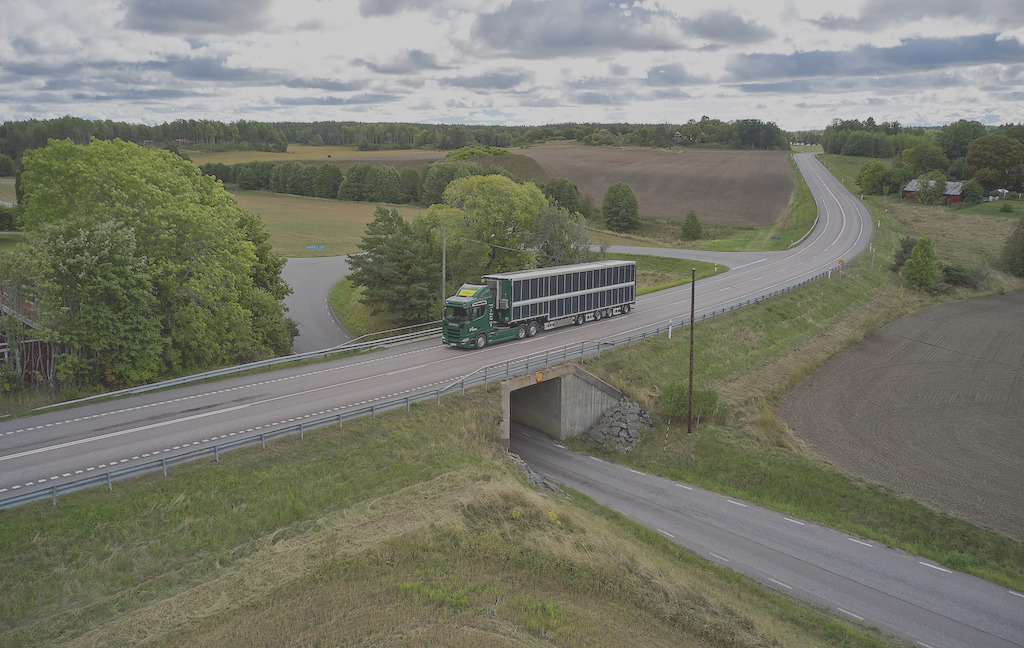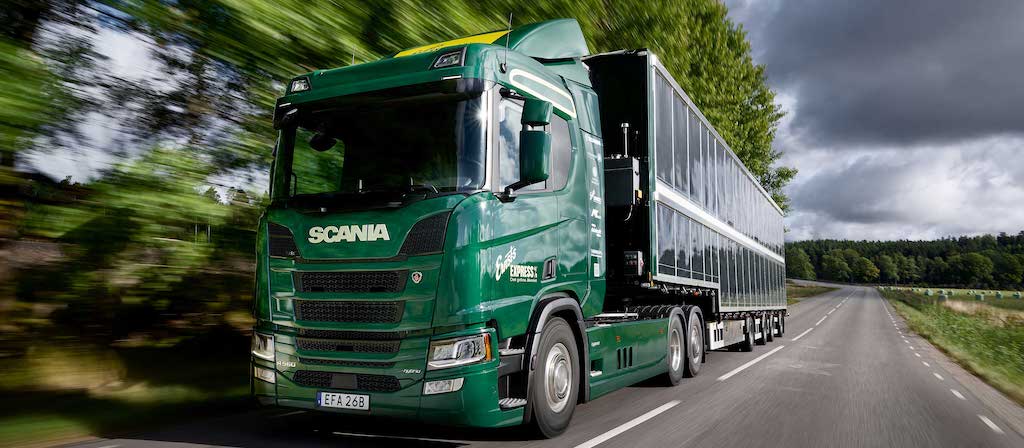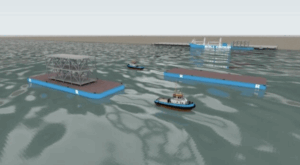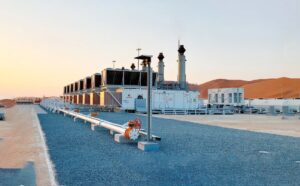A unique hybrid truck with a solar panel covered trailer is being tested on public roads, as a result of a two-year research collaboration involving Scania, Uppsala University, Eksjö Maskin & Truck, Midsummer, Ernsts Express, and Dalakraft. The solar energy decreases operational costs and local emissions significantly because of the truck’s self-produced energy.
“Scania’s purpose is to drive the shift towards a sustainable transport system. Never before have solar panels been used to generate energy to a truck’s powertrain like we do in this collaboration. This natural energy source can significantly decrease emissions in the transport sector. It is great to be at the forefront in the development of the next generation’s trucks,” says Stas Krupenia, Head of the Research Office at Scania.
The truck is used in a research project to examine the generated solar energy, and how much carbon emissions decrease via the solar panels. The researchers developed new, efficient, and lightweight solar panels for trucks. They also study how trucks can interact with the power grid, and bring forward new models for what will happen if several trucks like this one are connected to the power grid.

The truck’s 18-metre trailer is almost completely covered in solar panels, equivalent to a house equipped with similarly powerful panels. The solar energy gives the hybrid truck a prolonged driving range of up to 5.000 kilometers annually in Sweden. In countries like Spain, with more sun hours, the vehicle can double the amount of solar energy and thus driving range compared to Swedish circumstances.
The project also includes researched on new, lightweight tandem solar cells, that are based on a combination of Midsummer’s solar cells and new perovskite solar cells. These enable a higher efficiency in the transformation of sunlight to electricity. Such a solution could double the solar energy generation, compared to the current energy generated by the panels.
“Our solar panels are excellent for applications that make commercial vehicles sustainable. We see great potential to decrease the emissions from heavy vehicles with electrification. Electricity generated by solar panels will save fuel and carbon emissions. We want to be a partner to count on, and that is enabled by this ground-breaking project,” says Erik Olsson, Head of Corporate Development, Midsummer.
Daniel Sandh, CEO Eksjö Maskin & Truck, agrees: ”The fuel is presently an increasing cost for haulage companies, and everything we can contribute with to lower this cost will benefit the society long-term.”
One part of the project was to evaluate the charging’s impact on the electricity grid and whether it would be possible to sell the surplus. The possibility of two-way charging is not entirely straightforward and the legislation is unclear.
“We thought we would be able to buy the trucks surplus, unfortunately that is not possible at the moment. But the solar cells becoming part of the truck’s energy supply is fantastic. As an electricity trading company, we see that all renewable energy sources are needed to cope with the energy transition,” says Sverker Ericsson, Electrical Trade Engineer at Dalakraft.
The truck will now be tested by operating on public roads by the haulage company Ernsts Express AB. “The whole industry is facing big challenges in general, and with fuel in particular. Electrification from renewable electricity is the future. It makes this project even greater for the green haulage company to be a part of,” says Lars Evertsson, CEO Ernsts Express.
The solar powered truck has been developed in a research project party funded by government agency of innovation Vinnova, to develop trucks with low climate impact thanks to solar energy. The truck is a 560 horsepower plug-in hybrid. On the 18-metre trailer, an area of 100 square meters is covered by thin, lightweight and flexible solar panels with a maximum efficiency of 13,2 kWp (kilowatt peak). They are estimated to deliver 8,000 kilowatt hour (kWh) annually when operated in Sweden. The batteries have a total capacity of 300 kWh, with 100 kWh on the truck and 200 kWh on the trailer.






